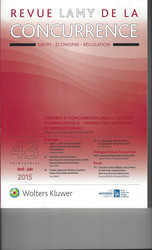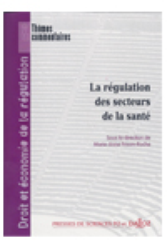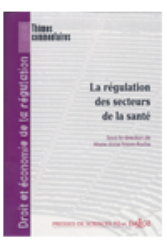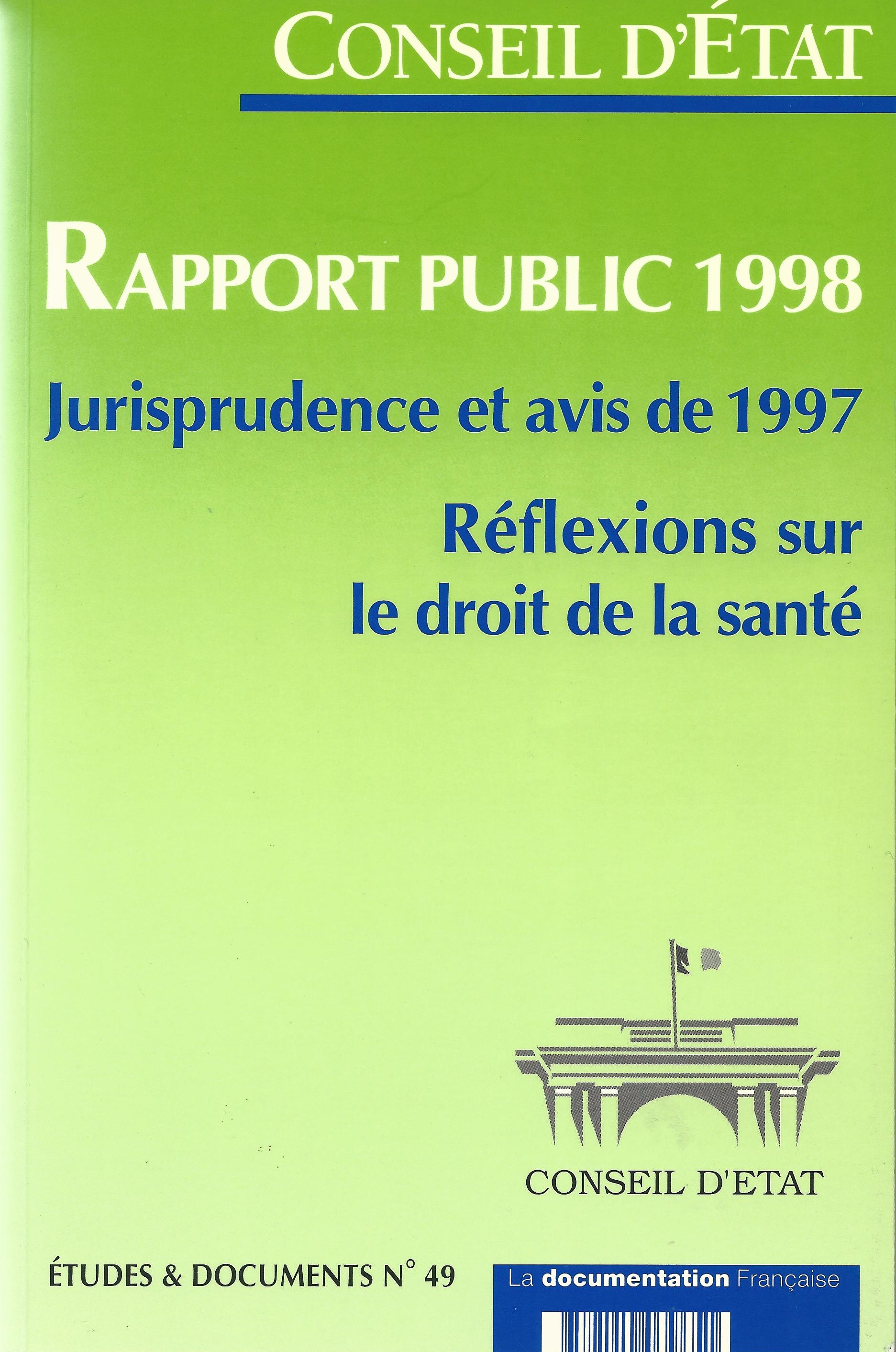June 21, 2021
Compliance: at the moment

► It is in its "Risk and Compliance" section that the Wall Street Journal, by its article of June 18, 2021 (➡️📝Europe's Chief Prosecutor Has 300 Cases on Her Plate Already), presents the first steps of the European Public Prosecutor’s Office, since June 1, 2021.
This inclusion presupposes that it is through a Compliance Law perspective that this new body must be understood, in order to understand and anticipate its action.
►In this perspective :
➡️📧Frison-Roche, M.-A., European Public Prosecutor's Office comes on stage: the company having itself become a private prosecutor, are we going towards an alliance of all prosecutors?, June 2, 2021
➡️ 💬Frison-Roche, « Le parquet européen est un apport considérable au Droit de la Compliance » (“The European Public Prosecutor's Office is a remarkable contribution to Compliance Law"), June 14, 2021
I. AN ACTION THAT WILL FOCUS ON FIGHTING THE MEANS USED TO DAMAGE THE FINANCIAL INTERESTS OF THE EUROPEAN UNION
The article of the Wall Street Journal takes the form of an interview with the European Prosecutor. Her responses also confirm the consubstantial link between European Public Prosecutor's Office and Compliance Law.
It is remarkable that she immediately says that she hopes the treatment of many cases, especially on healthcare and infrastructure sectors: "Our expectation is to have more cases, especially in the healthcare system, in public procurement, infrastructure, and also in agriculture ".
However, the 2017 European Regulation which established the European Public Prosecutor’s Office said that its "mandate" is to prosecute offenses affecting the "financial interests of the European Union", without being hampered by the cumbersome procedures for cooperation between States while these offenses are most often cross-border.
But one could think that, knowingly taking the means (corruption, money laundering) for the goal, the European Public Prosecutor's Office would immediately pursue not only the defense of the financial interests of the Union (admittedly financial interests damaged by corruption or money laundering) but these facts themselves: thus the European Public Prosecutor's Office works with the European Supervisory Authorities, in particular banking and financial authorities, which fight in Ex Ante against these offenses and prevent them.
II. AN ACTION THAT FOCUSES ON SECTORS NOT LEGALLY REGULATED IN EX ANTE BY SECTORAL REGULATORY AUTHORITIES
Moreover, it will be noted that the European Prosecutor is targeting three economic sectors which are not "regulated sectors" in the legal sense of the qualification, that is to say not monitored by a sectoral Regulatory and/or Supervision Authority: Health, Infrastructure and Agriculture.
Thus, the power of Regulatory Law, which relies in its Ex Ante, and its weakness, which derives from the pre-required existence of a sectoral Authority, is compensated: the action of the Public Prosecutor's Office is not limited to legally regulated sectors.
While Competition Authorities are mandated (➡️📅La concurrence dans tous ses états, June 25 and 26, 2021) to protect the competitive functioning of the markets, a Public Prosecutor's Office can deal with any infringement without having to determine a market.
For instance, Infrastructures don't constitute pertinent markets but can constitute fields for criminal activities, such as corruption or money laundering, justifying Compliance Law mechanisms.
What the new European Prosecutor is aiming for, namely Health, Infrastructures and Agriculture, have undoubtedly been damaged both by the sole primacy of the Competition perspective and by a Criminal Law constrained by the difficult inter-State cooperation, even though they are not subject to a supranational Ex Ante Regulation.
The European Public Prosecutor's Office aims to directly improve this, through Entreprises acting in Health, Infrastructures and Agriculture.
_________
Aug. 25, 2020
Newsletter MAFR - Law, Compliance, Regulation

Full reference: Frison-Roche, M.-A., The always in expansion "Right to be Forgotten": a legitimate Oxymore in Compliance Law built on Information. Example of Cancer Survivors Protection, Newsletter MAFR - Law, Compliance, Regulation, 25th of August 2020
Read by freely subscribing other news of the Newsletter MAFR - Law, Compliance, Regulation
Summary of the news
The "right to be forgotten" is an invention of the Court of Justice of the European Union during the case Google Spain in 2014. It implies that digital firms block the access to personal data of someone who asks it. This "right to be forgotten", which permits to impose secret to third parties has largely been generalized by GDPR in 2016. This new fundamental subjective right is a very political and European right. United-States which, on the contrary of Europe, did not experience nazism, links the "right to be forgotten" to the protection of consumer, conception which especially leads California Consumer Privacy Act adopted in 2018 to link this right to a situation of absence of necessity of this data for the firm which obtained it.
In Europe, this willingness to protect directly the person increases the scope of such a subjective right. Thus, in France and in Luxembourg, since 2020, a cancer survivor can thus ask that such an information is not accessible among his or her health data, especially for insurance companies which use them in their risk calculus to set premium amount. Netherlands will do the same in 2021 to fight against discrimination between banks' and insurances' clients.
The "monumental goal" is therefore not so much here the protection of individual freedoms as the protection of the vulnerable person, which is bye the way the keystone of a Compliance Law, concealing sometimes prohibition to circulate information (as here) and sometimes obligation to circulate information (in other cases, where the alert must be given) depending on whether vulnerable people are protected either by one or by the other.
Sept. 22, 2015
Conferences
April 28, 2015
Publications

Référence complète : Frison-Roche, M.-A., La distribution en gros du médicament entre concurrence et régulation, in Contrat et concurrence dans le secteur pharmaceutique - perspectives nationales et internationale, Revue Lamy de la Concurrence (RLC), n°2781, avril-juin 2015, p.193-197.
L'article s'appuie sur un working paper, plus développé, actualisé et dotée de nombreuses références technique.
Oct. 21, 2013
Conferences
A première vue, parce que l’Ordre est une structure qui existe pour concevoir et faire vivre une déontologie dont le socle est moral, alors que le droit de la concurrence, dont le principal gardien est la Commission européenne, est le gardien du marché concurrentiel, lieu d’ajustement des désirs des demandeurs, satisfaits par des offreurs qui recherchent leur profit, les Ordres sont du côté de l’État et s’opposent à l’Europe et au droit de la concurrence.
Mais c’est avoir courte vue.
Au contraire, les marchés ont besoin de confiance, surtout quand l’activité est risquée (risque sanitaire) et que le demandeur est en asymétrie d’information (patient). Dès lors, celui-ci doit pouvoir s’en remettre à celui qui lui offre une prestation. Il ne le peut qu’en tant que celui-ci est un "professionnel", garanti par l’Ordre, qui est source de confiance pour un marché, devenu plus puissant de ce fait. L’Ordre est en cela l’avenir des marchés de confiance.
Lire une synthèse opérée par les organisateurs et publiée dans la Revue de l'Ordre des chirurgiens-dentistes.
Updated: July 31, 2013 (Initial publication: Nov. 8, 2011)
Teachings : Les Grandes Questions du Droit, semestre d'automne 2011

Updated: Sept. 22, 2011 (Initial publication: April 27, 2011)
None

Référence complète : FRISON-ROCHE, Marie-Anne (dir.), La régulation des secteurs de la santé coll. "Droit et Économie de la Régulation", vol.6, Dalloz / Presses de Sciences Po, 2011, 182 pages
Pour accéder à l'article de Marie-Anne Frison-Roche : "La complexité inhérente à la régulation des systèmes de santé : dialectique entre politique et contrat", [cliquez ici. ->http://www.mafr.fr/spip.php?article2365]
Lire le résumé de l'article ci-dessous.
April 27, 2011
Publications

Références complètes : FRISON-ROCHE, Marie-Anne, "La complexité inhérente à la régulation des systèmes de santé : dialectique entre politique et contrat" in FRISON-ROCHE, Marie-Anne (dir.) La régulation des secteurs de la santé, coll. "Droit et Economie de la Régulation", vol.6, Dalloz / Presses de Sciences Po, 2011, p. 165-182.
Le secteur de la santé est régulé car il se caractérise par une complexité multiple, mêlée de soucis politiques, de prérogatives juridiques, d’efficiences économiques et d’équilibres financiers. Cette complexité est « multiple » car cela renvoie à des disciplines diverses qui communiquent peu entre elles, et suivant les époques, l’on fera prédominer l’une sur l’autre. Aujourd’hui, c’est l’urgence financière qui domine. Le secteur de la santé est fondamentalement régulé car même là où place est faite à la concurrence, c’est une façon instrumentale. De la même façon les contrats s’y développent pour produire des incitations favorables au système. En effet, la dimension politique du secteur est toujours présente. La santé est marquée par la dialectique entre la politique, contrats et stratégie des acteurs, la concurrence n’ayant qu’une place secondaire par rapport à la régulation.
Lire la présentation générale de l'ouvrage dans lequel la contribution est parue.
Lire le résumé de l'article ci-dessous.
Oct. 10, 1998
Thesaurus : Doctrine

